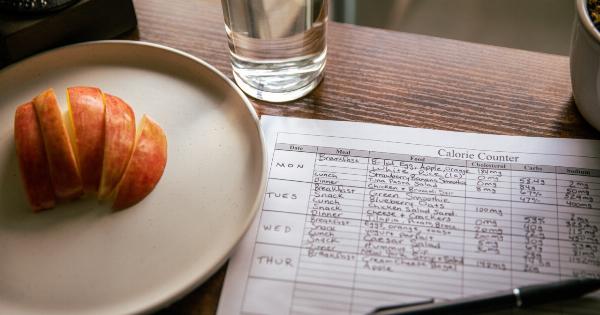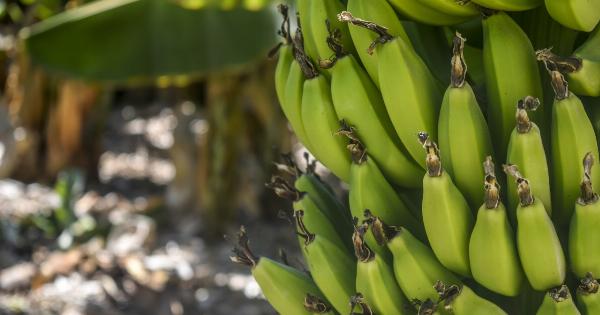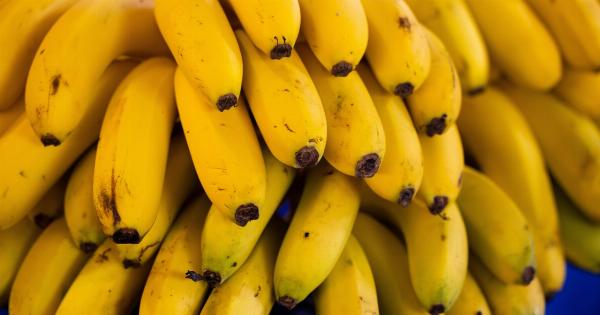Potassium is an essential mineral that is important for maintaining optimal health. It is vital for the proper functioning of the body, as it helps to regulate fluid balance, transmit nerve impulses, and maintain normal blood pressure.
Despite its importance, many people do not consume enough potassium in their diet. In this article, we will explore the sources and functions of potassium and how to incorporate this important mineral into your daily routine.
What is Potassium?
Potassium is a mineral that is necessary for the proper functioning of the human body. It is an electrolyte that helps to regulate fluid balance in the body and is involved in several essential physiological processes.
Potassium is required for the transmission of nerve impulses, the contraction of muscles, and the maintenance of normal blood pressure. A deficiency in potassium can lead to several negative health outcomes and may increase the risk of chronic diseases such as high blood pressure, heart disease, and stroke.
Sources of Potassium
Potassium is naturally present in many foods, including fruits, vegetables, dairy products, and meats. Some of the best sources of potassium include:.
1. Bananas
Bananas are perhaps the most well-known source of potassium. One medium-sized banana contains approximately 400-450 mg of potassium, making it an easy and convenient way to incorporate this vital mineral into your diet.
2. Avocado
Avocado is a great source of healthy fats, as well as many other nutrients, including potassium. One medium-sized avocado contains approximately 700-800 mg of potassium, making it a great addition to salads, sandwiches, and smoothies.
3. Sweet Potatoes
Sweet potatoes are a nutritious and delicious source of dietary potassium. One medium-sized sweet potato contains approximately 500-600 mg of potassium, as well as several other key vitamins and minerals.
4. Spinach
Spinach is a nutrient-dense leafy green vegetable that is an excellent source of potassium. One cup of cooked spinach contains approximately 800-900 mg of potassium, making it one of the most concentrated sources of this important mineral.
5. Tomatoes
Tomatoes are a popular fruit that is widely used in many different types of cuisine. One medium-sized tomato contains approximately 300-400 mg of potassium, as well as several other essential nutrients, including vitamin C and lycopene.
6. Yogurt
Yogurt is a dairy product that is an excellent source of high-quality protein, as well as several key vitamins and minerals.
One cup of plain yogurt contains approximately 500-600 mg of potassium, making it a great choice for a healthy snack or breakfast option.
Functions of Potassium
Potassium plays several important roles in the human body. Some of its key functions include:.
1. Regulating Fluid Balance
Potassium helps to regulate fluid balance in the body and is involved in many physiological processes, including the movement of water and electrolytes across cell membranes.
A deficiency in potassium can lead to fluid imbalance and electrolyte disturbances, which can have negative health consequences.
2. Transmitting Nerve Impulses
Potassium is involved in the transmission of nerve impulses, which is critical for the proper functioning of the nervous system.
It helps to ensure that nerve signals are transmitted efficiently and accurately, which is essential for functions such as muscle contraction, sensory perception, and cognitive function.
3. Maintaining Normal Blood Pressure
Potassium plays a key role in the regulation of blood pressure. It helps to counteract the effects of sodium on the body, which can lead to high blood pressure if left unchecked.
A diet that is high in potassium and low in sodium has been shown to be effective in reducing blood pressure and lowering the risk of cardiovascular disease.
4. Supporting Muscle Function
Potassium is essential for the proper functioning of muscles. It helps to regulate muscle contractions and is involved in the synthesis of proteins that are necessary for muscle growth and repair.
A deficiency in potassium can lead to muscle weakness, cramping, and fatigue.
How to Incorporate Potassium into Your Diet
Incorporating potassium-rich foods into your diet is an easy and effective way to ensure that you are getting enough of this vital mineral. Some tips for increasing your potassium intake include:.
1. Eat More Fruits and Vegetables
Fruits and vegetables are some of the best sources of dietary potassium. Aim to include at least five servings of fruits and vegetables in your daily diet, focusing on potassium-rich options such as bananas, sweet potatoes, spinach, and tomatoes.
2. Choose Lean Meats and Dairy Products
Lean meats and dairy products are also good sources of potassium. Choose options such as chicken, turkey, fish, and low-fat dairy products to increase your intake of this important mineral.
3. Use Herbs and Spices
Herbs and spices can add flavor to your meals without adding extra calories or sodium. Many herbs and spices, such as parsley, basil, and turmeric, are also great sources of potassium.
4. Limit Processed and Packaged Foods
Processed and packaged foods are often high in sodium and low in potassium. Limit your intake of these types of foods and focus on whole, unprocessed foods to ensure that you are getting enough of this vital mineral.
Conclusion
Potassium is an essential mineral that is important for maintaining optimal health.
It is involved in several key physiological processes, including the regulation of fluid balance, the transmission of nerve impulses, and the maintenance of normal blood pressure. Consuming potassium-rich foods such as fruits, vegetables, dairy, and meats is an easy and effective way to incorporate this important mineral into your daily routine.





























